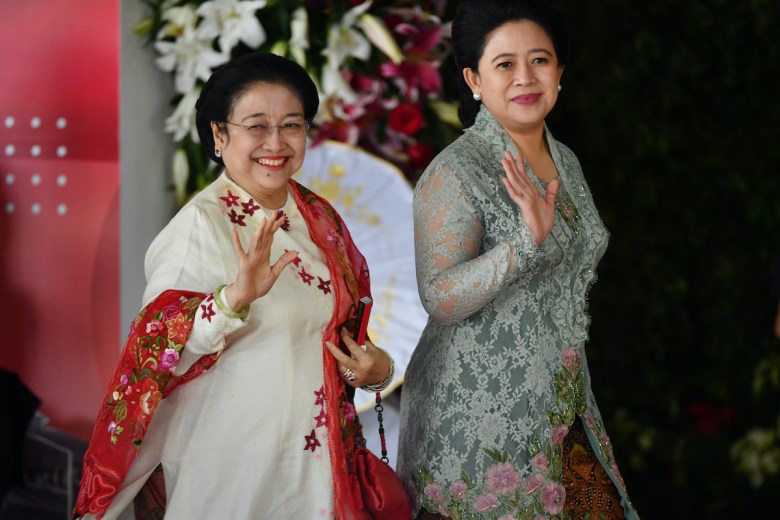JAKARTA – President Joko Widodo has finally told his subordinates to stop talking about an extension to his term or a delay in the 2024 elections in his first clear effort to put to bed a controversy that has raised political temperatures and sparked concern about a backward step for Indonesian democracy.
“No one brings up the matter of an extension or a (election) delay anymore,” he declared in his opening remarks at an April 5 weekly Cabinet meeting. “No more. Concentrate on managing the (economic) difficulties we are facing.”
His 10-minute speech, posted on the palace website, criticized his aides for failing to communicate with the public over rising prices, an issue that could erode some of his enduring popularity, and expressed concern over the scarcity of some basic goods.
A spokesman for chief maritime minister Luhut Panjaitan, who has been vocal in calling for an extension, told reporters: “Luhut will remain focused on restoring the economy and handling the problems faced by the people in accordance with the president’s instructions.”
Apart from Panjaitan, economic coordinating minister Airlangga Hartarto and Investment Minister Bahlil Lahadalia had also voiced support for the move, which gathered pace after the outbreak of the Covid-19 pandemic proved a major setback to Widodo’s second-term agenda.
Central to that has been the plan to move the national capital from Jakarta to East Kalimantan, a US$35 billion undertaking that has now run into financing difficulties which will cause further serious delays unless more money is found in the state budget.
Only recently, Home Affairs Minister and former police chief Tito Karnavian weighed into the debate as well, insisting that constitutional amendments, necessary to extend Widodo’s term, were part of a democracy and not what he called a “holy scripture.”

An ‘unnecessary distraction’
A Jakarta Post editorial described the issue an “unnecessary distraction,” saying a firm stand by the president matters “because it not only protects our cherished democracy but also allows the nation to avoid, at a time critical for its future, an unnecessary and distracting political circus.”
Analysts say despite Widodo’s stern tone in Cabinet, there is still no firm guarantee that the talk of an extension will end, particularly among the political parties who have a vested interest in seeing he stays in office – if only to avoid a costly election campaign.
“True, we should call on the public to trust President Widodo, but we should also remain on guard because it is the politicians we are up against,” political commentator Hendri Satrio told CNN Indonesia. “There should be other actions, apart from making a Cabinet speech, even if it was convincing.”
Although Widodo had on four occasions rejected the idea of an extension, he had done nothing to rein in his aides, just as he failed to stop his chief of staff, Moeldoko, from attempting to undermine former president Susilo Bambang Yudhoyono’s hold on the Democrat Party last year.
Indonesians are well aware of a culture that allows a leader to “reluctantly” bow to the supposed wishes of the people, but in this case a series of public opinion surveys have all shown 60-70% of respondents to be opposed to a third term.
On top of that, only the Golkar, National Awakening (PKB) and National Mandate (PAN) parties have supported the idea, well short of the votes needed to get a constitution change through the People’s Consultative Assembly (MPR), the country’s top legislative body.
Although there are dissenters in the ranks, former president Megawati Sukarnoputri’s ruling Indonesian Democratic Party for Struggle (PDI-P) has been in strong opposition, mainly because the matriarch’s daughter, House Speaker Puan Maharani, has leadership ambitions of her own in 2024.

Palace intrigue
Even volunteers from the president’s 2014 and 2019 election campaigns have given it the thumbs-down, including alumni of Jogjakarta’s Gadjah Mada University, who now support poll-topping Central Java Governor Ganjar Pranowo for the presidency because they believe he will carry on the Widodo legacy.
Rumors that the palace was behind the extension bid intensified when the Indonesian Village Government Association, which is not authorized to meddle in practical politics, announced its support for an extension after meeting with Widodo at the palace.
That drew a strong denial from Cabinet Secretary Pramono Anung. “There are those who continue to try for the sake of trying,” he told a parliamentary hearing. “But as well know, amending the constitution isn’t easy and opens up a Pandora’s box.”
Interestingly, like the latest Indonesian Survey Institute (LSI) poll, the same number of respondents who reject a presidential extension also give Widodo a solid job approval rating, despite recent price increases and the criticism he has taken at times over the government’s Covid-19 response.
When the time comes to judge Widodo on that front, most analysts believe he will come out of it with a favorable report card, not only for eventually containing the pandemic, but in ensuring the economy at least has remained on course.


